Request a Catalog

George Medal
George Medal
Submitted by R.A. Wulff
In the early morning hours of August 7, 1942, elements of the First Marine Division made their way into the landing boats and began the assault on the Japanese held island of Guadalcanal. As in any conflict, there were to be many acts of heroism, untold fear and the seeds of legends. After an unopposed landing and the initial advance into the interior of the island by the Marines, the Japanese decided that it was time to drive the Americans away from Henderson Airfield and back to the beaches where the Japanese Army would annihilate them. The Marines saw it differently and the battle went from a sparing match to a brawl. It was the birth place of major offensive action and the thousands of telegrams that were to be sent to the front doors of American homes from the Pacific for the next three years.
On the night of August 9’th, ships of the Japanese Navy’s Eighth Fleet attacked and inflicted one of the worst defeats on the U.S. Navy. The remaining ships of American Task Force 62 made a tactical withdrawal and when the Marines looked out to sea the next morning, there were no US transport ships on the horizon. Those transports held the beans, bullets and bandages on which the Marines and naval personal depended. The leathernecks were on their own, probably outnumbered, with limited supplies, a shortage of ammunition and facing a fanatical enemy. Having had degrees of differences with the U.S. Navy throughout their history, several senior Marine officers thought that such unmanly action ought to be immortalized with an award: thus, The George Medal. A Marine artist made a rough sketch and a mold was cast when the division returned to Australia. The obverse of the medal showed a uniformed forearm and a hand dropping a hot potato into the arms of a willing Marine. In the original drawing, the sleeve bore the gold stripes of a U.S. Navy Vice-Admiral. However, discretion and cooler heads prevailed so that the naval insignia was omitted at the last moment. Also depicted to the left of the Marine was a Saguaro cactus. The code name for the invasion of Guadalcanal was Operation Cactus. Beneath this scene is the Latin inscription, Facia Georgius, which means, roughly translated, ‘Let George Do It.’ The reverse is more akin to the scatological humor of combat and depicts the rear end of a cow and an electric fan. It is inscribed: “In fond memory of the happy days spent from Aug. 7, 1942 to Jan. 5, 1943. U.S.M.C.”
As in any war, there were men who found ways to avoid the hard choices of military duty. They had their high moral convictions, their trick knees and most important, their connections. During World War Two their mantra was, ‘Let George do it.’ It was a common expression that rationalized their actions to avoid any discomfort or danger. They wanted no part of the war and they believed that there would be enough of the George types to fill the ranks. Most of the men and women who volunteered in the in the weeks and months after Pearl Harbor did not give much thought to being a George type. Perhaps, not a few, would have said, “Yes, I am George and I am here for the duration.” They were the American volunteers and they did not intend to stay out of the war. They had little in common with those who waiting for a draft notice, those who bided their time and hoped the war would not touch their lives. For these men, the war was an unwanted intrusion. They believed that the best thing was to stay out of the military and remain at home. Stay where the black market items could be had for the right favor and the right price and stay out of the draft pool. If you had to be in uniform, you wanted very much to stay in the states; if you had to go overseas, you preferred to stay in the rear area and you schemed to stay out of the infantry. Now we are in a very different kind of war and it may be time to strike a new George Medal.
An effective and fair military draft for any war, declared or not, is a substantive necessity. It enforces, in a cold and forceful manner, the shared sacrifice of all of a nation’s citizens. It obliterates the false premise that there is a class within the society that is ordained to fight wars and that other classes are absolved from wars because they have more and better choices in life. Supporting any war and believing that someone else’s child will be available and willing to fight that war is a moral apostasy. As we continue into the sixth year of the Iraq War, the vast majority of American families are unscathed by the losses that are occurring on a daily basis in Afghanistan and Iraq. For us, the war is no more than a media event, leaving some indignant and outraged, while others are simply indifferent: none are required to risk or sacrifice anything. It is odd that there is so little political unrest or opposition to the war on our college campuses. Is it only an immoral and unjust war when a draft threatens to send the children of the privileged to the streets of Fallujah? For that small percentage of American families that have their loved ones over there, the war is with them every hour of the day: it is around their kitchen table with that empty chair at every meal; it is the whisper of pillow talk for the parents of a daughter or son every night and it sits with a spouse in the living room as the shadows fall across the floor. It gives no comfort or peace of mind, ever. As for the others, those who support the war in Iraq, but who chose not to serve in uniform, you need to stand and be recognized.
As we remember and honor our veterans, every day, not only the special days, we would all do well to spend some time walking in one of our flag enriched cemeteries to remind ourselves of the cost of wars, past and present. As for re-issuing a new George Medal, I believe it should be awarded to all those who have never been in uniform, but who voice their loud support for any war and believe that others and their family members will fight it. We have a certain politician in Washington DC who secured four student deferments to avoid Vietnam, but who was at the forefront of The Gulf War and is now one of the principals of The Iraq War. He is my prime candidate for the first award ceremony at The White House. The new George Medal would be simple and easily recognized, perhaps a yellow ribbon and a small oval mirror: in this way these like minded patriots will see themselves in a new light.
Semper Fi,
R.A. Wulff
RVN, 68-69


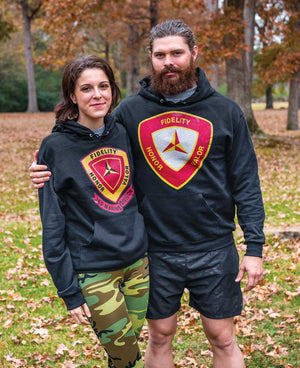
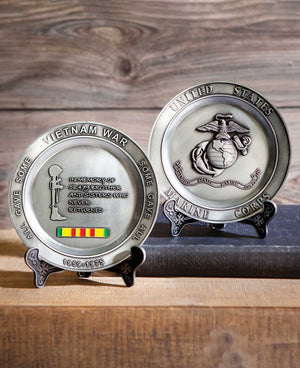
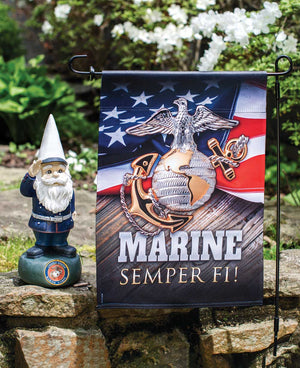
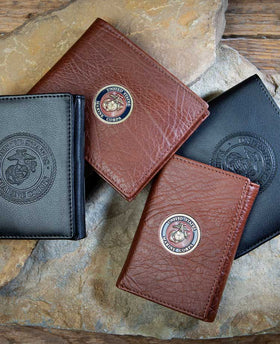
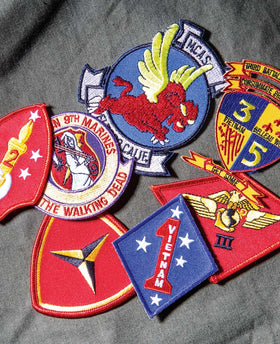
Leave a comment